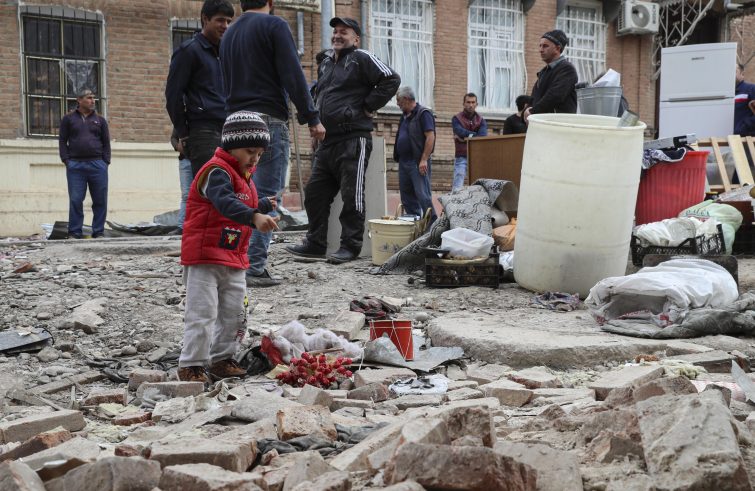
In a joint letter to European Union foreign policy chief Josep Borrell, the World Council of Churches (WCC) and the Conference of European Churches (CEC), denounced the blockade by Azerbaijan of the ethnic Armenian region of Artsakh/Nagorno-Karabakh, “as a violation of the tripartite agreement that ended the six-week war of 2020, of international humanitarian and human rights law, and of the most fundamental moral principles.” By obstructing the humanitarian Lachin corridor, and by temporarily cutting gas supplies to the region just at the onset of winter – reads the letter released to the press on Tuesday by the two ecumenical bodies – Azerbaijan is deliberately creating a humanitarian emergency for the 120,000 ethnic Armenian residents.” The Letter is signed by CEC General Secretary Dr. Jørgen Skov Sørensen and by the WCC Acting General Secretary Rev. Ioan Sauca. For CEC and the WCC, “this follows a clear pattern of behaviour by Azerbaijan that contradicts any claims of goodwill and humanitarian responsibility on its part.” The Letter likewise emphasizes mounting evidence of serious human rights violations against Armenians by the Azerbaijani army and security forces.
“In these circumstances Armenian fears of renewed genocide against them cannot be discounted, and the already week-long blockade of Artsakh/Nagorno-Karabakh is a context in which those fears are greatly and understandably exacerbated.”
In fact, the blockade prevents the movement of goods and persons. Some critically ill patients admitted to the Stepanakert Republican Hospital and in the process of being transferred to Yerevan hospitals cannot be moved, with serious consequences for their health. The letter calls on the EU to pursue all possible diplomatic initiatives to ensure that Azerbaijan re-opens the Lachin corridor, providing appropriate guarantees that it will remain open. “Further, we appeal to you to do all in your power to secure extension of the mandate of the existing EU monitoring mission at the Armenia-Azerbaijan border to include the Lachin corridor, in order to provide independent civilian monitoring of the situation along the corridor.”
Pope Francis expressed great concern over the situation unfolding in the Lachin Corridor in the South Caucasus during last Sunday’s Angelus prayer. “I am concerned about the precarious humanitarian conditions of the people, which are in further danger of deteriorating during the winter season,” he said. His Holiness Aram I, Catholicos of the Armenian Church, denounced the situation in a note released a few days ago: “Azerbaijan has cut the gas supply from Armenia to Artsakh, leaving this isolated population with diminishing supplies, struggling to survive—without heat—in subzero winter conditions. Hospitals, schools, and social services are unable to properly operate; the outlook grows ominously grim. A dire humanitarian catastrophe is unfolding, specifically engineered to eliminate the Armenian population of Artsakh.”
“We are witnessing deliberate and concrete steps toward the ethnic cleansing and genocide of the Armenian population of Artsakh”, writes Aram I. Hence the appeal to “world governments”, spiritual leaders, political figures, human rights activists to “not remain indifferent to the fate of the Armenian people, once again on the brink of genocide.”
The Œuvre d’Orient (a French Catholic association created to support Christian communities in the Near and Middle East) and Rome’s Armenian Community also spoke out. The latter appealed to the “Italian institutions” asking that “the rights of Artsakh Armenians (freedom of movement, self-determination, life, liberty) be respected in accordance with international conventions.” Nagorno-Karabakh is a disputed territory in the South Caucasus claimed by Armenia and Azerbaijan, which engaged in armed strife in the period spanning January 1992 to May 1994. Technically, the two countries have been at war ever since, and the Azerbaijani government is threatening to retake Nagorno-Karabakh by military force. The border areas between Nagorno-Karabakh and Azerbaijan remain military-occupied under a ‘ceasefire’ regime that is often violated by both parties. It is a “hybrid” or “frozen” conflict on Europe’s borders that risks escalating, jeopardising the security of the entire region.









